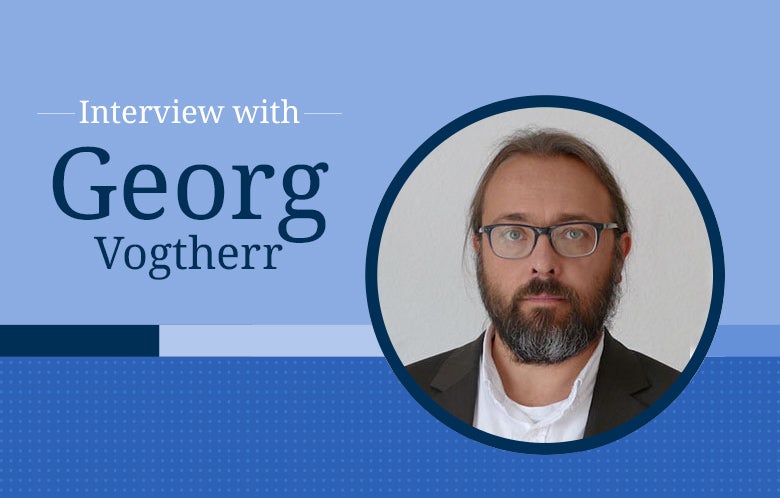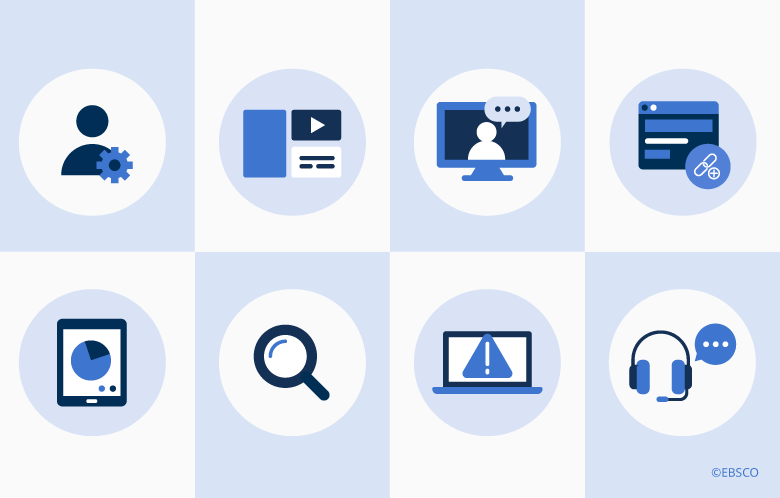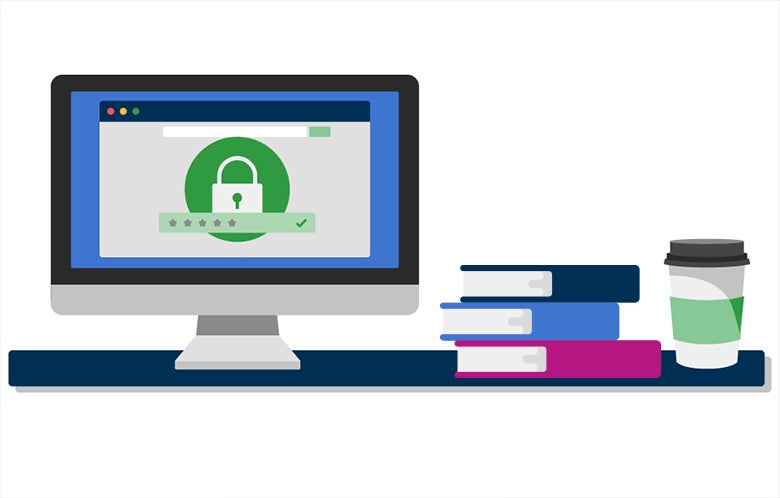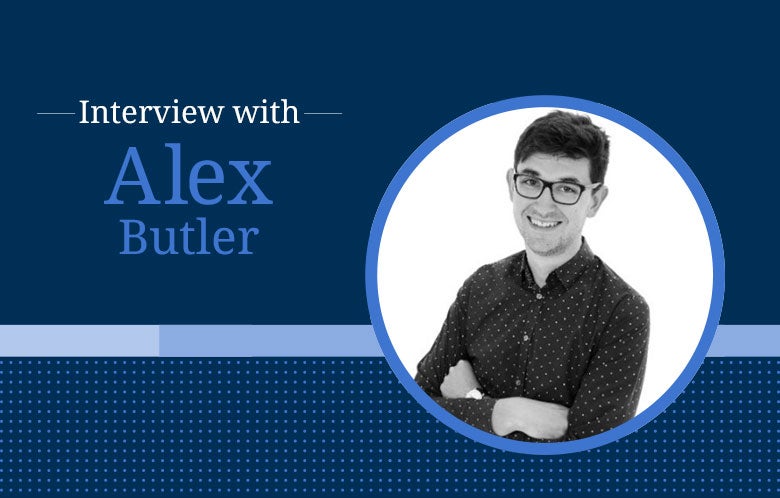Tell us a little about your background before joining EBSCO.
I studied cultural science/ethnology at university. Since libraries have always been of interest to me, I wanted to continue my development in that direction. I completed a Masters in Library & Information Science (MLIS) in Scotland. I then worked in the museum industry before moving on to EBSCO in 2011.
What does your work at EBSCO currently look like?
I work mostly from my home office. I support libraries in the Benelux and in German-speaking Europe. Currently my work mainly consists of conducting online training sessions and webinars for library staff and end users. I also record general instructional videos and occasionally create custom videos for clients.
In non-COVID times, we offer on-site training for some customers. Unfortunately, due to the ongoing pandemic, we have not been able to do this recently but have taken advantage of our online instructional methods to continue meeting customer needs.
My work also includes liaising with colleagues internationally to add EBSCO Academy, our educational portal designed to help customers increase their knowledge of EBSCO’s products and services.
What products and solutions are covered in your training agenda?
I provide training on all EBSCO products including databases, EBSCO Discovery Service™, management module EBSCOadmin™, book and e-book ordering systems EBSCOhost® Collection Manager and GOBI®, and products from our partners such as OpenAthens.
How do your courses support EBSCO's customers and what are the benefits for libraries and users?
End users often do not have a complete picture of the resources they can access through the library and may be unaware of how to use them to effectively to find the information relevant to their research. During the training sessions provided, users are provided with direction to help navigate the resources available to them.
EBSCO’s training sessions also provide benefits for libraries. We provide information on how to use and manage their EBSCO products from an administrative perspective. User-focused sessions help promote the resources and encourage usage. We can also provide concise user manuals and other marketing materials upon request, helping to bring resources to the attention of users and optimize usage.
What do you imagine your work will look like in the future?
My area of work at EBSCO has constantly evolved and will continue to do so. There are always new products and solutions to explore. Open-source library platform FOLIO and content management platform Stacks will become increasingly important. The mobile use of library content, for example through the EBSCO Mobile app, is becoming more and more prevalent. Even more attention will be paid to the creation of tutorials and the development of training materials for e-learning in different media types.



